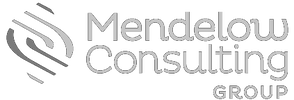 It was Arthur Ashe who said, “Start where you are. Use what you have. Do what you can.” It’s been over a year since the death of George Floyd. In the workplace and beyond, more and more people feel the urgency to make positive change, and to do their part for social justice. In my work with leaders, I find that many are informed, motivated, and outraged, but remain unsure of their next steps. The quote from Arthur Ashe is a great one. Start where you are. What could that look like for you? Here are three ways to start where you are...1) Fully leverage your people dataIf you are in an organization that sends out a company-wide survey annually or every other year, you have valuable data right at your fingertips. Most managers will receive their team or business unit data, skim through the results and perhaps review the pluses and deltas with their leadership team. Lately, however, I’ve noticed a trend of managers getting curious. Even when the results are positive, leaders are willing to dig in further and slice and dice the data to uncover patterns. In one case, a leader had received high ratings and still decided to investigate further. To his surprise, when he analyzed the data differently, there was a clear gender discrepancy in a handful of items. He reached out to MCG, and our associates conducted focus groups and engaged with the leadership team to implement specific strategies. The focus group themselves were powerful and appreciated by the staff. Staff were grateful that their leader cared enough to examine their results and get to the core of important issues. (In fact, one participant sent a personal thank-you, grateful for the opportunity to have such an open discussion with the team.) Action: Even if you receive high ratings on an engagement survey, get curious and examine your company-wide data to see where you can improve. 2) Assess the organizational moodOur book club discussion this month focused on the book Reinventing Diversity by Howard Ross. One of the most useful takeaways was Ross’ list of “12 Building Blocks for Culture.” It’s a really powerful list (see an abbreviated list of questions below). In particular, I was captivated by #6 on the list, “organizational mood.” Two questions Ross proposes for this area are:
Mood is similar to “climate,” and emotions are the weather, or what’s going on throughout the organization. As a coach and facilitator, I will be asking about mood to see what comes up for people. It’s an accessible way to enter into what can sometimes be a difficult conversation. Action: Incorporate questions about organizational mood into your 1:1 or skip-level meetings. 12 Building Blocks for Culture With sample questions
3) Be flexibleIn the book, Ross also talks about “cultural flexibility.” It is a systematic approach to incorporating an awareness of diversity and skills related to diversity into everything an organization does. I see this as integration.
Even in mature organizations, it’s important to notice where diversity skills and awareness of diversity is missing. Years ago, one of our MCG team members worked at a university with a big international focus. Many of the biggest majors had global curriculum, more than 20% of the student body had completed high school outside the U.S., and each semester hundreds of students studied abroad. Yet the post office on campus struggled to find the charge code to send a package internationally, and the employee phone lines (this was in the days of long-distance calling codes), did not allow for overseas calls. These were small annoyances, but examples that illustrate how an initiative must reach all corners of an organization in order to truly demonstrate cultural flexibility. Action: Re-evaluate your processes and systems from your customer’s perspective, and notice what aligns (and doesn’t align) to your company’s DEI strategy.
0 Comments
Your comment will be posted after it is approved.
Leave a Reply. |
AuthorLaura Mendelow |
|
|
©2020. All Rights Reserved. Mendelow Consulting Group, LLC.

